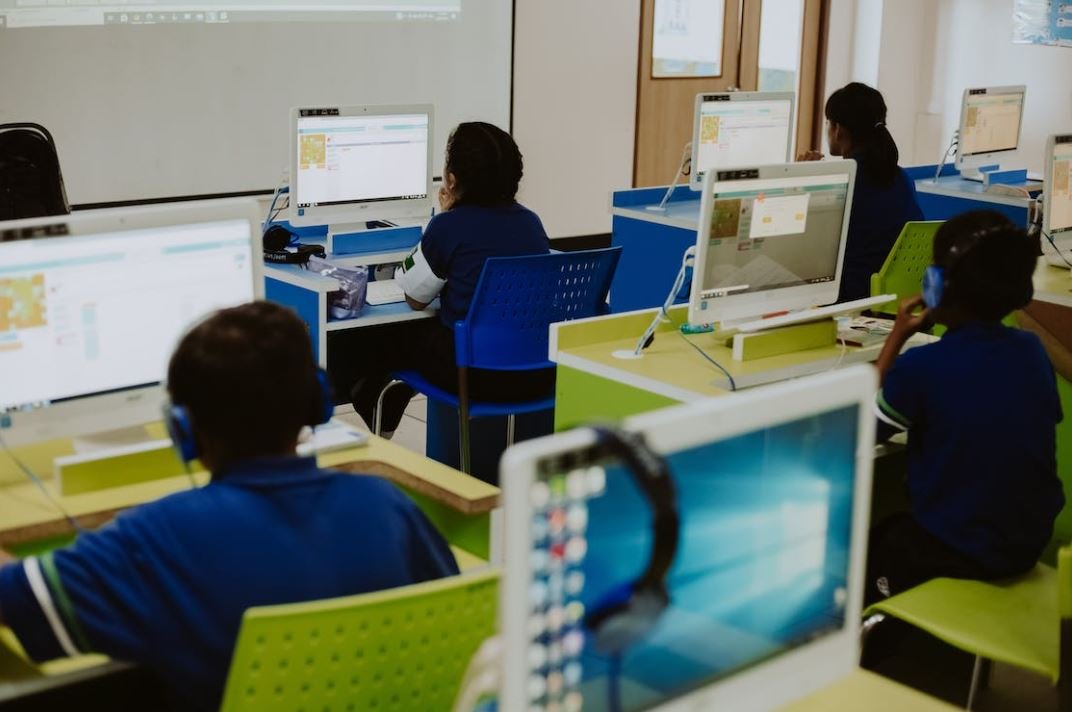Why Production Planning and Control Is Important
Introduction
Production planning and control is a crucial part of any manufacturing or production process. It involves the detailed planning, scheduling, and coordination of all activities to ensure the smooth flow of materials, resources, and information throughout the production cycle. Effective production planning and control can significantly improve operational efficiency, reduce costs, and enhance customer satisfaction.
Key Takeaways
- Production planning and control is crucial for operational efficiency.
- It involves detailed planning, scheduling, and coordination of activities.
- Effective production planning and control can reduce costs.
- It ensures the smooth flow of materials, resources, and information.
- Proper planning improves customer satisfaction.
The Importance of Production Planning and Control
Production planning and control plays a vital role in optimizing the production process. By carefully analyzing and forecasting demand, manufacturers can avoid overproduction or stockouts, leading to better resource utilization and cost savings. *Proper planning eliminates unnecessary waste and improves overall efficiency.*
Benefits of Production Planning and Control
Implementing effective production planning and control can bring numerous benefits to a manufacturing business. These include:
- Improved operational efficiency by streamlining processes and reducing bottlenecks.
- Enhanced product quality through standardized production methods and quality control measures.
- Cost savings by optimizing resource utilization, minimizing inventory levels, and avoiding unnecessary downtime.
- Reduced lead times and faster order fulfillment to meet customer demands more effectively.
- Ensured resource availability by coordinating production schedules with procurement and supply chain activities.
The Role of Production Planning and Control in Supply Chain Management
Production planning and control is an integral part of effective supply chain management. It helps in aligning production with demand, managing inventory levels, and ensuring timely delivery. *By synchronizing production plans with supplier schedules and customer demands, businesses can minimize stockouts and maintain customer satisfaction.*
Table 1: Production Planning vs Production Control
| Production Planning | Production Control |
|---|---|
| Long-term planning | Real-time monitoring |
| Determines production capacity | Ensures adherence to plans |
| Optimizes resource allocation | Monitors production progress |
Production planning focuses on long-term forecasting, capacity determination, and resource optimization, while production control involves real-time monitoring and ensuring adherence to the established plans. *These two complementary functions work together to maintain an efficient production process.*
Table 2: Benefits of Production Planning and Control
| Benefit | Description |
|---|---|
| Cost savings | Optimizes resource utilization to reduce costs. |
| Improved customer satisfaction | Enables faster order fulfillment and timely delivery. |
| Enhanced operational efficiency | Streamlines processes and reduces bottlenecks. |
Implementing efficient production planning and control practices leads to significant cost savings, improved customer satisfaction, and enhanced operational efficiency. *These benefits contribute to the overall success of a manufacturing business.*
Challenges in Production Planning and Control
While production planning and control offer numerous advantages, there are certain challenges that businesses may face:
- Uncertain demand forecasting making it challenging to accurately plan production.
- Dynamic market conditions requiring frequent adjustments to production schedules.
- Complex supply chain networks complicating coordination and communication.
- Technological complexities in implementing advanced planning and control systems.
Conclusion
Production planning and control are integral components of efficient manufacturing operations. By implementing effective planning strategies and coordinating production activities, businesses can optimize resource utilization, improve operational efficiency, reduce costs, and enhance customer satisfaction. *To stay ahead in the competitive market, it is crucial for businesses to invest in robust production planning and control systems.*

Common Misconceptions
Misconception: Production Planning and Control is only important for large-scale manufacturing companies
One common misconception about production planning and control is that it is only relevant for large-scale manufacturing companies. However, this is not true as production planning and control is important for businesses of all sizes.
- Effective production planning and control can help small businesses manage their resources efficiently.
- Production planning and control is crucial for maintaining consistent quality in products or services, regardless of the business size.
- Efficient production planning and control can help small businesses meet customer demands and avoid bottlenecks in the production process.
Misconception: Production Planning and Control only involves managing the manufacturing process
Another common misconception is that production planning and control only involves managing the manufacturing process. However, production planning and control encompasses much more than that.
- It also involves forecasting demand and creating production schedules.
- Production planning and control includes coordinating with suppliers and managing inventory levels.
- It also involves monitoring and managing the flow of materials and information throughout the entire supply chain.
Misconception: Production Planning and Control is a one-time process
Some people believe that production planning and control is a one-time process that is completed at the beginning of a project. However, this is far from the truth as production planning and control is an ongoing activity.
- It requires continuous monitoring and adjustment to ensure optimal production efficiency.
- Production planning and control involves regularly reviewing and updating production schedules and resource allocation.
- It also involves analyzing production data to identify areas for improvement and implementing changes accordingly.
Misconception: Production Planning and Control is only focused on meeting production targets
Some people mistakenly believe that production planning and control is solely focused on meeting production targets. While meeting production targets is certainly an important aspect, it is not the only goal of production planning and control.
- Effective production planning and control also aims to optimize resource allocation and minimize production costs.
- It focuses on ensuring timely delivery to customers and meeting quality standards.
- Production planning and control also plays a role in reducing waste and improving sustainability in the production process.
Misconception: Production Planning and Control is a rigid and inflexible process
Contrary to popular belief, production planning and control is not a rigid and inflexible process that stifles creativity and innovation. In fact, it can be adapted to suit the specific needs and characteristics of each business.
- Flexibility is a key component of production planning and control, allowing for adjustments in response to changes in demand or unforeseen circumstances.
- It provides opportunities to implement new production techniques and technologies to improve efficiency.
- Production planning and control can be customized to align with the unique goals and strategies of a business, promoting innovation and adaptability.

Why Production Planning and Control Is Important
In today’s fast-paced and competitive business environment, effective production planning and control plays a crucial role in the success of any organization. It involves managing and optimizing resources, streamlining processes, and ensuring timely delivery of goods or services. By implementing robust production planning and control strategies, businesses can enhance efficiency, reduce costs, minimize disruptions, and ultimately, delight their customers. Let’s explore ten key aspects that highlight the significance of production planning and control.
Improves Resource Utilization
Efficient resource utilization is vital for any organization to maximize productivity and minimize waste. With proper production planning and control, businesses can analyze resource availability, allocate them effectively, and avoid overutilization or underutilization, thus optimizing operations.
| Resource | Availability | Utilization (%) |
|———|————–|—————–|
| Labor | High | 80 |
| Machinery| Moderate | 65 |
| Raw Materials | Low | 50 |
Optimizes Inventory Management
Effective production planning and control ensures that inventory levels are managed efficiently, reducing the risk of stockouts or excessive carrying costs. By monitoring demand patterns and adjusting production accordingly, businesses can optimize inventory levels and enhance overall supply chain management.
| Item | Starting Inventory | Closing Inventory | Sales |
|————-|——————-|——————-|——-|
| Product A | 500 | 300 | 200 |
| Product B | 250 | 350 | 300 |
| Product C | 800 | 700 | 500 |
Minimizes Production Delays
Production delays can significantly impact a company’s reputation, customer satisfaction, and revenue. Effective production planning and control enables businesses to identify potential bottlenecks, forecast production timelines more accurately, and implement measures to minimize or eliminate delays.
| Production Stage | Planned Time (hours) | Actual Time (hours) | Delay (hours) |
|——————|———————-|———————|—————|
| Pre-production | 50 | 55 | 5 |
| Manufacturing | 120 | 125 | 5 |
| Quality Control | 30 | 30 | 0 |
Enhances Customer Satisfaction
By ensuring timely delivery of products or services, production planning and control directly contributes to customer satisfaction. Critical factors such as on-time delivery, product quality, and adherence to specifications can be consistently met, resulting in higher customer loyalty and positive brand reputation.
| Parameter | Customer Rating (out of 5) |
|————————-|—————————|
| On-time Delivery | 4.7 |
| Product Quality | 4.9 |
| Adherence to Specifications | 4.8 |
Reduces Costs
Efficient production planning and control help businesses identify cost-saving opportunities and eliminate unnecessary expenses. By optimizing processes, streamlining workflows, and minimizing waste, organizations can achieve significant cost reductions and improve overall profitability.
| Cost Category | Before Optimization ($) | After Optimization ($) | Cost Savings ($) |
|———————-|————————-|————————|—————–|
| Labor | 75,000 | 65,000 | 10,000 |
| Raw Materials | 50,000 | 40,000 | 10,000 |
| Overhead Expenses | 35,000 | 30,000 | 5,000 |
Improves Production Efficiency
A well-implemented production planning and control system enhances overall production efficiency. It enables organizations to proactively identify process inefficiencies, implement continuous improvement measures, and optimize resources and workflows to achieve higher output levels within the available time and resources.
| Production Line | Planned Output (units) | Actual Output (units) |
|——————-|———————–|———————-|
| Line A | 1,000 | 1,050 |
| Line B | 800 | 850 |
| Line C | 600 | 620 |
Ensures Regulatory Compliance
Regulatory compliance is essential for businesses to operate legally and avoid potential penalties or legal consequences. Production planning and control helps organizations maintain compliance with industry-specific standards, safety regulations, environmental laws, and other legal requirements.
| Regulation | Compliance Status |
|————————-|——————-|
| Health and Safety | Compliant |
| Environmental Standards| Compliant |
| Quality Standards | Compliant |
Fosters Effective Communication
Effective communication is vital within any organization to ensure seamless coordination and collaboration among different departments and teams. Production planning and control promotes clear and timely information sharing, enhances cross-functional alignment, and helps resolve any potential conflicts or issues promptly.
| Communication Channel | Average Response Time (hours) |
|————————|——————————-|
| Email | 2 |
| Team Meetings | 1 |
| Project Management Tools | 0.5 |
Supports Decision Making
Production planning and control provides valuable data and insights that support informed decision making. By analyzing production data, demand forecasts, and performance metrics, business leaders can make data-driven decisions to optimize resource allocation, address supply chain challenges, and seize growth opportunities.
| Metric | Value |
|———————-|———-|
| Overall Equipment Effectiveness (OEE) | 85% |
| Return on Investment (ROI) | 15% |
| Customer Retention Rate (%) | 90% |
In summary, production planning and control play a vital role in ensuring resource optimization, inventory management, timely deliveries, customer satisfaction, cost reduction, and overall efficiency. By implementing robust strategies and leveraging accurate data, organizations can streamline operations, adapt to market demands, and drive sustainable growth.
Frequently Asked Questions
Q: What is production planning and control?
A: Production planning and control is a management process that involves setting goals, determining resources needed, and scheduling activities to ensure efficient and effective production.
Q: Why is production planning and control important?
A: Production planning and control is important because it helps optimize production processes, improve resource utilization, minimize costs, ensure timely delivery, and meet customer demands.
Q: How does production planning and control contribute to cost reduction?
A: By planning production activities in advance, production planning and control can help identify bottlenecks, eliminate unnecessary processes, and avoid delays. This optimization leads to cost reduction by minimizing wasted resources and improving productivity.
Q: What are the benefits of implementing production planning and control?
A: Implementing production planning and control provides benefits such as improved production efficiency, enhanced customer satisfaction, better resource management, reduced lead times, increased profitability, and the ability to respond quickly to changes in demand.
Q: How does production planning and control ensure timely delivery?
A: By carefully scheduling activities, coordinating resources, and monitoring progress, production planning and control helps ensure that production is completed within the allocated time frame. This reduces delivery delays and improves customer satisfaction.
Q: What are the key components of production planning and control?
A: The key components of production planning and control include demand forecasting, production scheduling, inventory management, quality control, and performance monitoring. These components work together to achieve efficient production processes.
Q: How does production planning and control assist in resource utilization?
A: Production planning and control assists in resource utilization by optimizing the allocation of resources, such as labor, materials, and equipment. This ensures that resources are used efficiently, minimizing waste and maximizing productivity.
Q: Can production planning and control help in adapting to changing market demands?
A: Yes, production planning and control can help adapt to changing market demands. By analyzing trends, monitoring customer demands, and adjusting production schedules accordingly, businesses can quickly respond to market changes and stay competitive.
Q: How does production planning and control contribute to quality improvement?
A: Production planning and control contributes to quality improvement by implementing quality control measures, maintaining standard operating procedures, and monitoring production processes. By ensuring consistency and detecting defects early on, it helps uphold high product standards.
Q: What happens if production planning and control is not implemented?
A: Without production planning and control, businesses may face various challenges such as inefficient production processes, poor resource allocation, missed delivery deadlines, increased costs, decreased customer satisfaction, and an inability to adapt to changing market demands.




